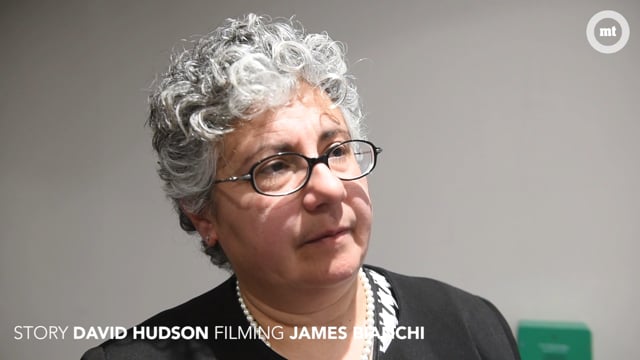[WATCH] Inside the boy’s club of finance, Maltese women facing greater pay gaps
In financial services, the gender pay gap is almost 24% – double the average 11% gap – which means even educated women are being paid less than men


Women are facing obstacles to equal pay despite pursuing university and further education, academic JosAnn Cutajar told MaltaToday on the margins of a conference on the gender pay gap.
“If girls continue studying and further their studies, it works against them. The average gender pay gap is 11% but in the financial services sector, for example, the discrepancy in wages between males and females is at 23.8%,” Cutajar said, adding that only at minimum wage was the discrepancy negligible.
The finding highlights the obstacles for equal pay that women face in ‘boys’ club’ networks that dominate particular industries.

Cutajar, a senior lecturer on gender studies at the Faculty for Social Wellbeing of the University of Malta, told a conference organised by the National Commission for the Promotion of Equality (NCPE) that Malta’s economic growth had not delivered a proportional increase in wages – and that this further reflected in the state of women’s wages.
“The real wage is increasing by 1.1% but not rising in accordance with the economic boom. This is partially due to the ‘foreignisation’ and dampening of wages. In order for us to start talking about tackling the gender pay gap, we need to also discuss inequality across the board,” she said.
Cutajar urged for an objective and extensive pay audit to ask whether women were being paid less either because they were less capable or just because of their gender. If it were the latter, she argued, women should be rightly compensated.
She made reference to the Canadian Proactive Pay Equity legislation of 2018 as a good model for Malta in the way of moving forward.
“A possible solution the Canadian model adopted is to rescind company licenses if they are discriminating women. These would have a maximum of three years to rectify the pay discrepancies among other things. We need to introduce such penalties in Malta,” she said.
She added that further research on processes that give rise to gender pay differences is required. “What is Malta’s objective criteria used in performance bonuses, for example?” she asked.
Cutajar also lamented the lack of gender mainstreaming NGOs which could help companies willing to reduce the gender pay gap, and pressure government into introducing relevant legislation. “Mandatory gender quotas in both the public sector and private sector will help eradicate institutional sexism and the appreciation of the value of women’s work,” she said.
Cutajar hoped for a more proactive approach in the future and said that while Malta had made significant improvements with the gender pay gap being lower than the EU average, more was required to address gender discrimination.

.png)




















